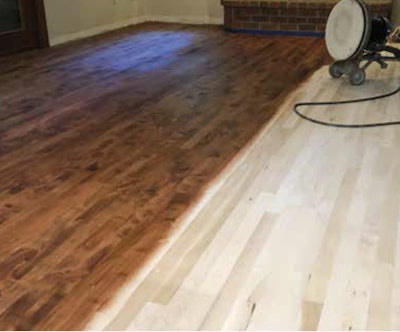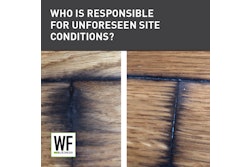
A flooring supplier client recently had an issue where, after installing and staining flooring materials they had purchased, a customer decided they did not like them and tried to return them. My client thought they must be joking, because common sense dictates that after you install and stain the materials, they may no longer be returned. However, the customer asserted that the supplier’s terms and conditions said nothing about not accepting materials that had been installed or finished. While we successfully argued that after installing and finishing the materials, the customer could not return them, this prompted my client to revise its terms and conditions to address the issue. Specifically, they added language stating that if the customer installs materials, they may no longer return them and must pay for them. This seems obvious, but you never know what some people might try.
Note that in this situation, any manufacturer warranties would still apply. For example, if after installing and staining wood flooring, it is later found to be defective, the customer would still have a manufacturer’s warranty claim. In this case, the distributor’s agreement should also clearly state that all product warranties are a pass-through to the manufacturer, and the distributor is not responsible for any labor to remove the defective materials or to install the new materials. The customer’s sole recourse in that situation is whatever the manufacturer’s warranty covers. This is important because most manufacturer warranties exclude labor and only cover providing replacement product.
Installers would be wise to include a similar provision in their agreements. I have seen games of “musical chairs” where both the manufacturer and distributor disclaimed labor related to a product failure and the installer was left without a seat, bearing the cost to remove and replace the floor even though the original installation was fine. The installer’s terms and conditions did not disclaim labor related to a product defect, and the customer successfully asserted that the installer offered a two-year warranty and was on the hook to remove the defective flooring and install the new flooring at no charge. If the installer’s agreement had disclaimed labor related to product failures and defects, then the customer would have been responsible for paying for that labor.
I recommend that installers and distributors have an attorney licensed in their state review their terms and conditions every few years to confirm if any changes are recommended. Further, if you encounter a unique situation where language in your agreement could have prevented a bad result, do not hesitate to revise your terms and conditions to address that scenario in the future.
































